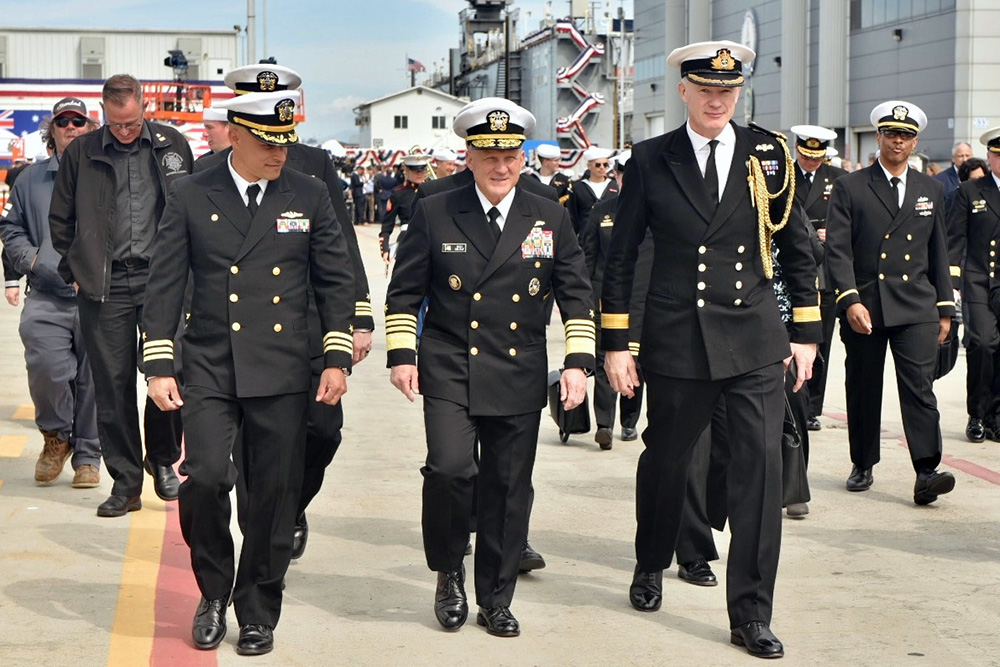The security partnership between Australia, the United Kingdom and the United States aimed at promoting a free and open Indo-Pacific region builds upon the long-established ties between the three countries, the U.S. Navy’s top admiral said yesterday.
Chief of Naval Operations Adm. Michael M. Gilday said the so-called AUKUS agreement is a “natural next step” for the three nations’ sea services.
“We’ve been working together for 100 years now, over 100 years, so this would be an obvious evolution in terms of where we would go, not only in terms of interoperability, but AUKUS takes it to a new level in terms of interchangeability, particularly with SSNs,” Gilday said referring to the U.S. Navy hull classification for nuclear-powered submarines.
The AUKUS partnership was agreed to in September 2021, kicking-off a multi-phased approach to fostering technology exchanges between the three countries and building Australia’s nuclear-powered submarine force.
As part of the plan, Australia will purchase three Virginia-class conventionally armed, nuclear-powered submarines in time to replace its current fleet of Collins-class diesel electric subs set to retire in the 2030s.

Chief of Naval Operations Adm. Michael M. Gilday attends an event to announcing the next steps in the trilateral security partnership between Australia, the United Kingdom and the United States in San Diego, March 13, 2023. © Navy Cmdr. Courtney Hillson
The three countries will also develop a state-of-the-art platform designed to combine and leverage their shared submarine technology. The “SSN-AUKUS” as the future platform is known, is slated to be fielded by the U.K. in the late 2030s and by Australia in the early 2040s.
In March of this year, President Joe Biden praised the progress that the three nations have made since announcing the agreement.
“Australia and the United Kingdom are two of America’s most stalwart and capable allies,” he said. “Our common values and our shared vision for a more peaceful and prosperous future unite us all across the Atlantic and Pacific. For more than a century, we’ve stood together to defend freedom and strengthen democracy … and to spur greater opportunity in all our countries.”
Gilday said senior leaders remain “committed to a relationship that’s grounded on trust” as the three nations work toward a shared goal during a panel discussion on the AUKUS hosted by the Center for Strategic and International Studies yesterday.
Deputy Assistant to the President and White House Coordinator for the Indo-Pacific Kurt M. Campbell underscored during the discussion the critical role the AUKUS agreement will have in extending lasting stability in the Indo-Pacific.
He said AUKUS is part of “a larger determination of the United States to act in decisive, innovative ways to signal that we’re going to play a powerful, important and enduring role in the Indo-Pacific now and into the future.”
“I do believe that each of the countries went into this with their eyes wide open, understanding the challenges, understanding that this is not just a week or two of celebration,” Campbell said. “But we’re all in it for the challenges ahead. And this is not something that will be accomplished in a short period of time. This is a long-term partnership that I think we’re all up for.”





